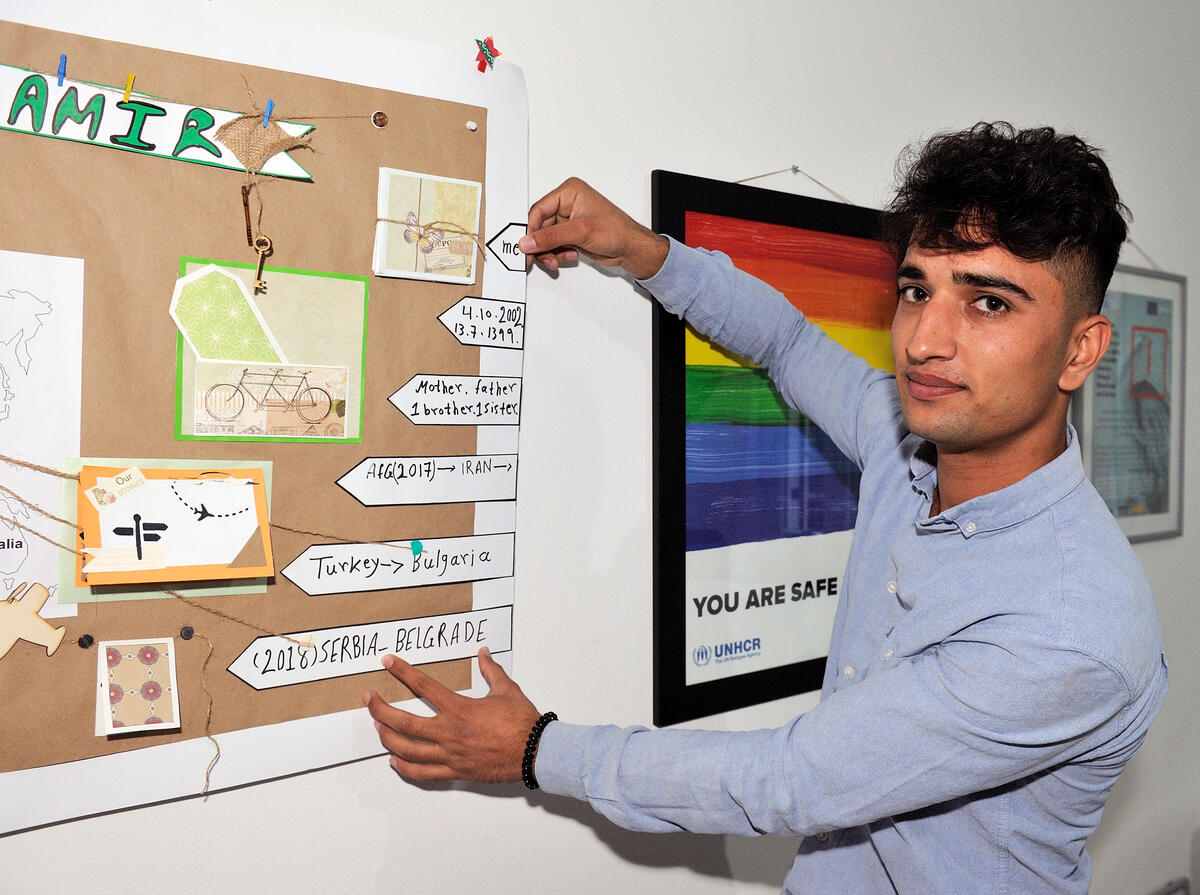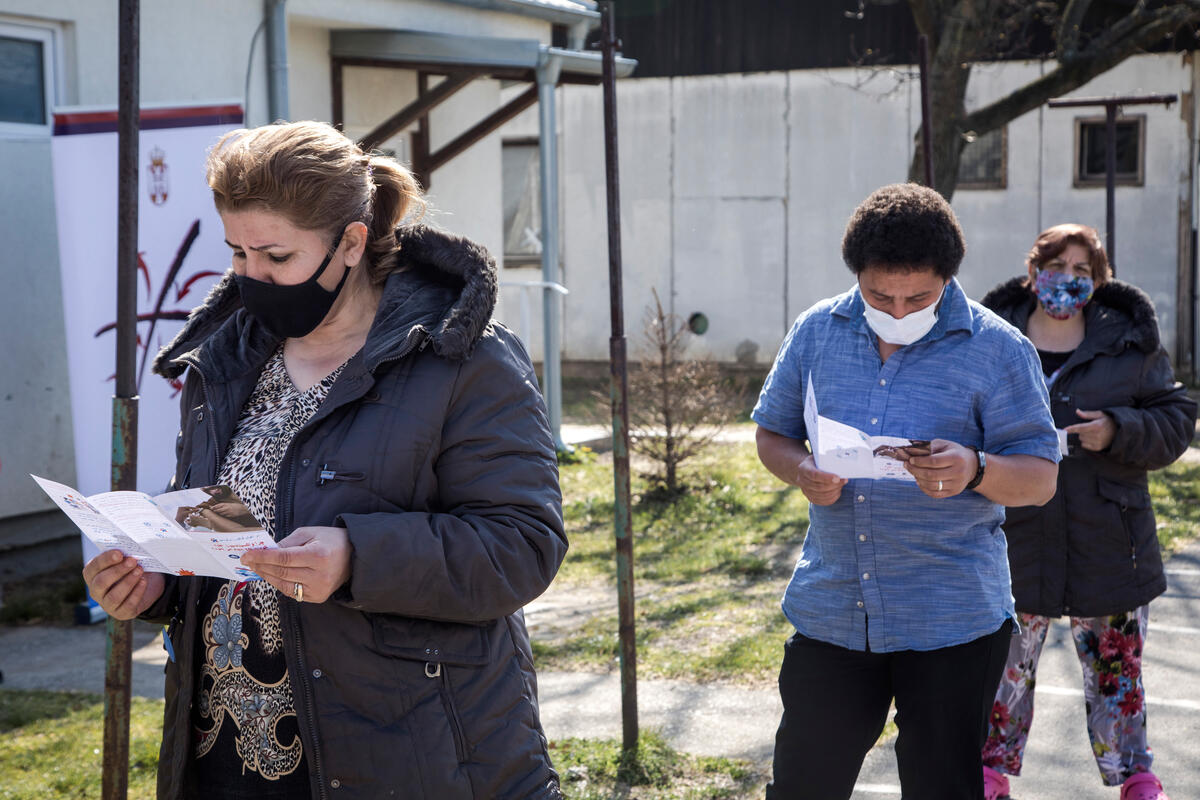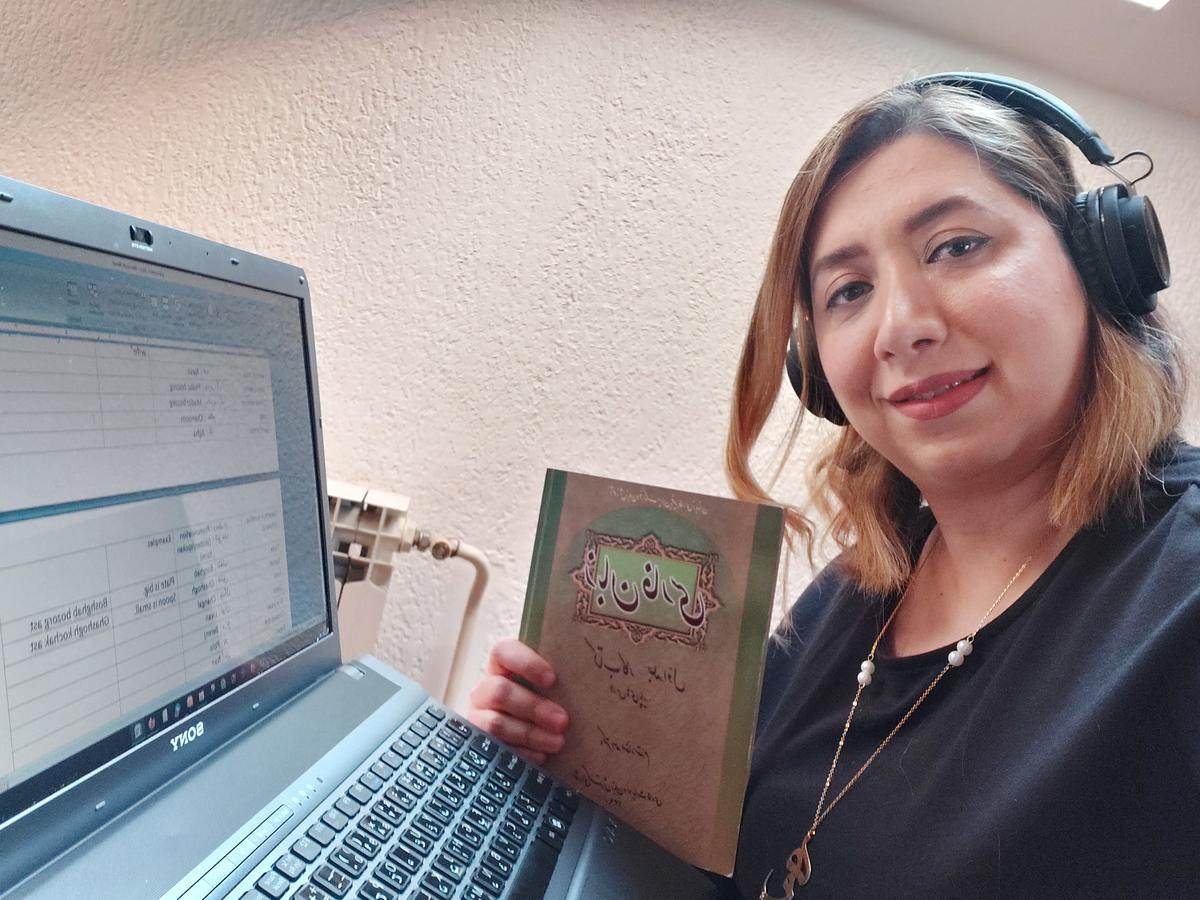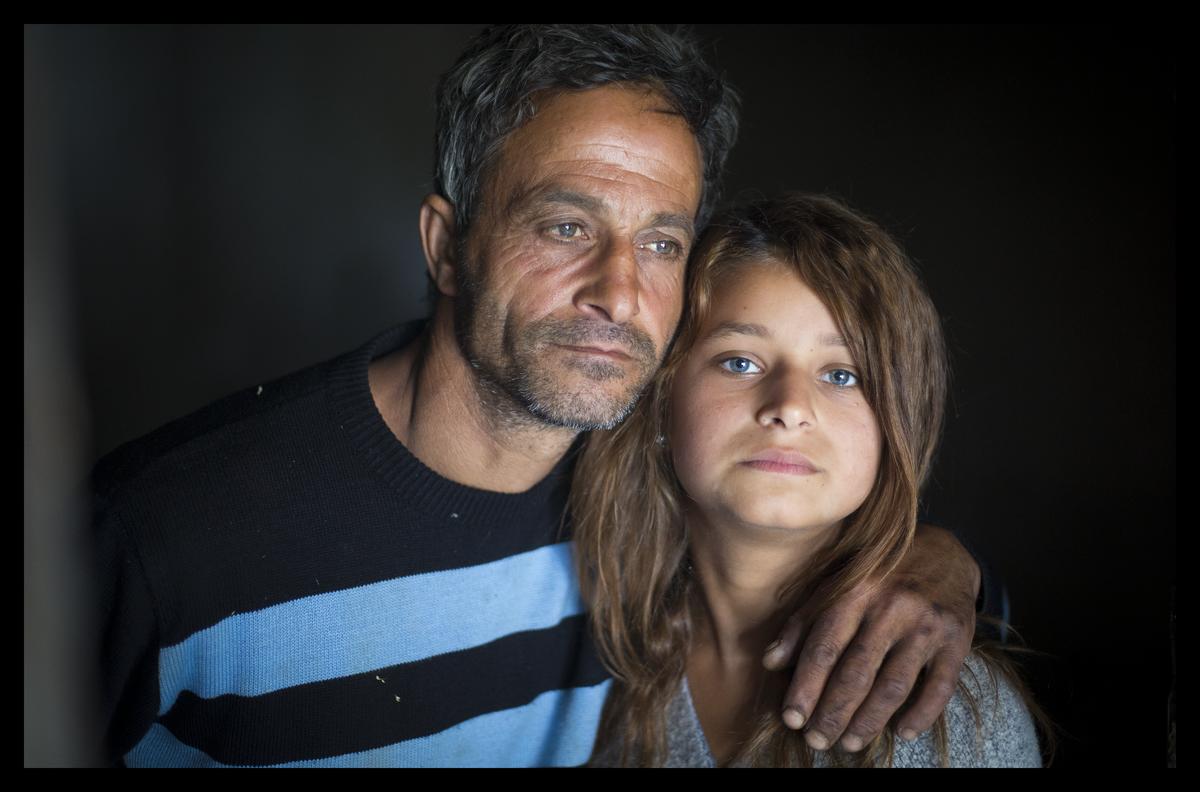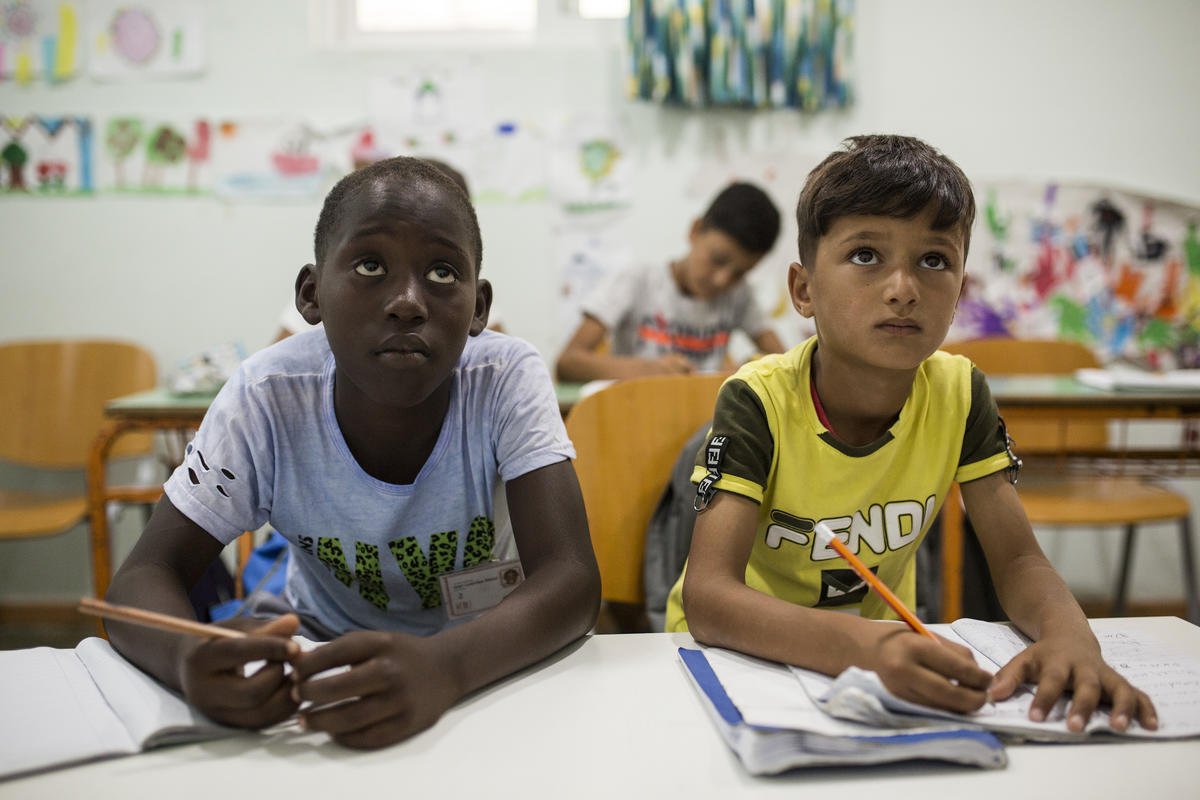Kosovo Crisis Update
Kosovo Crisis Update
The Exodus
During 2 April, an estimated 45,000 Kosovars arrived at the Macedonian border with Kosovo, of whom around 25,000 in six trains carrying people who report that they were expelled from Pristina. The new arrivals were exhausted and traumatized. Registration by the Macedonian authorities is proceeding slowly; 60 busloads of people were transported out of the border area and into Macedonia during the day. UNHCR has set up a 24-hour presence at the border, where it is continually distributing food, blankets, plastic sheeting and other supplies.
UNHCR has been urging the authorities in Skopje to accelerate the pace at which the refugees are allowed to enter the country, saying that they must be moved to safe sites at a distance from the border as quickly as possible.
In Albania, the number of new arrivals from Kosovo since 24 March has risen to around 170,000, of whom 22,000 crossed during the night of 2-3 April alone. Many thousands more are waiting to cross.
In addition, Montenegro has received 32,000 refugees since 24 March.
High Commissioner appeals for halt to exodus
In a statement issued on 2 April at UNHCR Headquarters, High Commissioner Sadako Ogata appealed to the Yugoslav authorities to stop the organized expulsion of Kosovars. She called this tactic "morally repugnant" and said that the capacity of aid agencies to cope with the number of refugees arriving at the borders of neighbouring countries "cannot keep pace with the scale of the expulsions and forced population displacements."
Assistance mounts but remains insufficient to cope with exodus
Aid flights continue to arrive in Tirana, Skopje and Thessaloniki, but the ability of these airports to handle large numbers of aircraft is limited.
UNHCR has accepted offers from both OSCE and member states of the North Atlantic Treaty Alliance to provide manpower and logistical support to cope with the crisis. OSCE will provide staff to work with the authorities to process refugee arrivals at entry points in Macedonia and Albania. The pace of processing is currently slowing the access of refugees to safety. Alliance experts are to help with co-ordination of the airlift and member states are invited to provide logistics support at air and seaports.
UNHCR also urges states to support the Macedonian and Albanian authorities with the preparation of sites for refugee locations. Such sites must be located at a safe distance from the border.
The U.S. government has contributed 500,000 meals-ready-to-eat, which are being shipped to Albania for the new arrivals in the Kukes area.
Donor alert issued
The UN issued a "donor alert" on 2 April, seeking $70.8 million for all UN agencies, to support 350,000 Kosovar refugees for a 3-month period (April-June). The UNHCR share of this amount is $43.3 million. This appeal is in addition to 1999 UN Inter-Agency Consolidated Appeal for the Former Yugoslavia and Albania, issued in December 1998 which asked for $359 million, of which $167 for UNHCR activities. The donor alert covers priority sectors including shelter, food, logistics and health.
Burden-sharing is needed
UNHCR is engaged in intensive discussions with countries in the south-east European region about taking in some of the Kosovar refugees who are massed at the Macedonian border. Relieving the pressure on the immediately affected countries is essential, as the large numbers of refugees arriving at their borders now exceeds the ability of the authorities to cope. The High Commissioner continues to appeal to all countries to keep their borders open and to be prepared to receive refugees fleeing the conflict.




